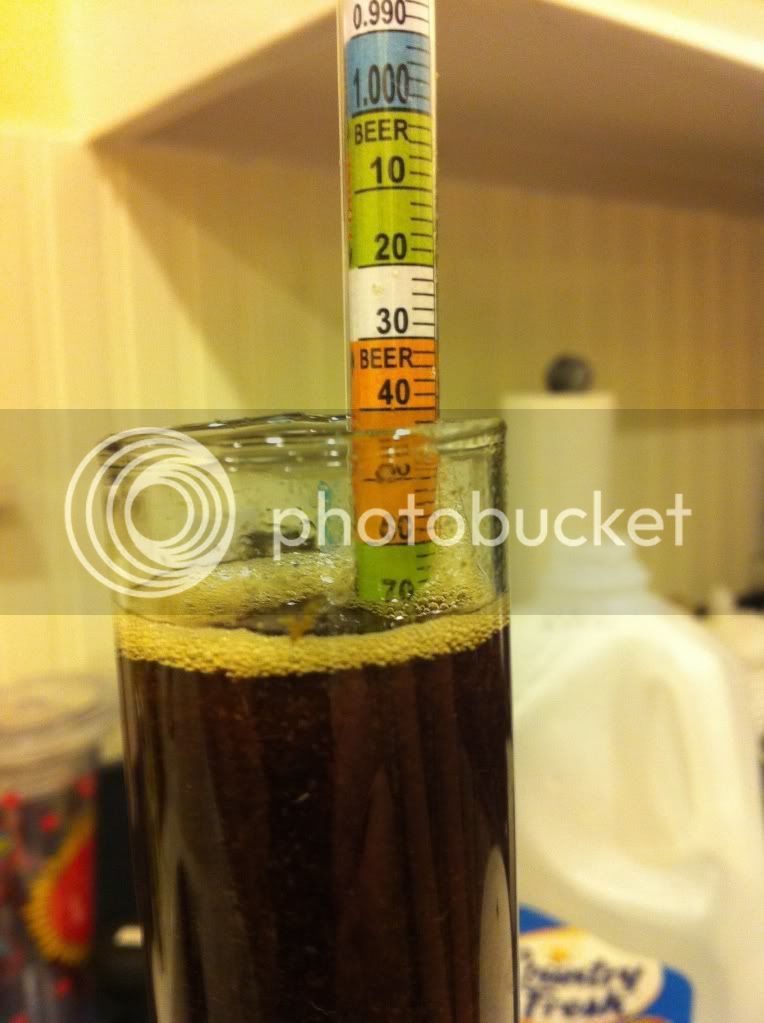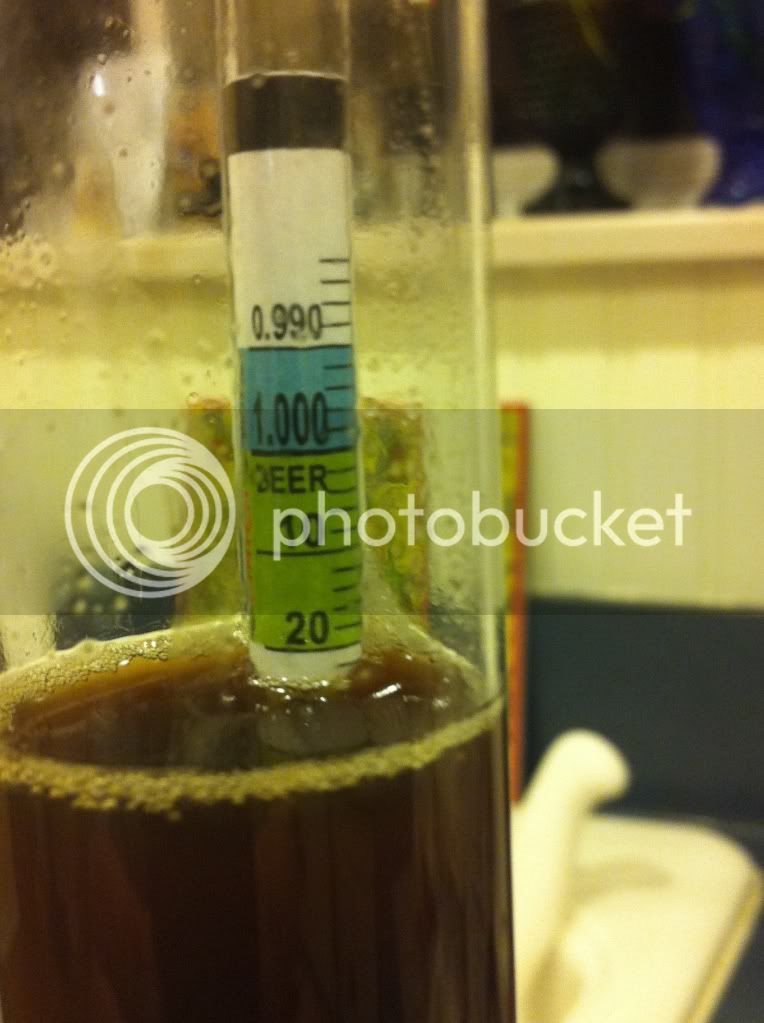Hello everyone,
I'm a newb when it comes to brewing, although I recently fermented and bottled my first batch and am working on my next batch. I'm brewing 6Gal of Munton's Nut Brown Ale, using the instructions along with 1 tablespoon of Allspice and 5 cups of Light Spraydry Malt. I rehydrated the yeast which came with the kit according to the directions, aerated the wort in my carboy, and pitched once the wort reached 70 degrees F. I then put the carboy in a closet and left it alone overnight.
The next day the airlock was very active, with gas escaping about every second. I closed the door and checked on the fermentation again the following day, with gas escaping about as frequently as before. The third day I checked, and the airlock activity was almost non-existent. Although there was still some kraeusen, it's very little. I have not taken a gravity reading since I pitched the yeast, since the instructions stated fermentation should take 4-6 days. Today is the fourth day, and the airlock is still quiet, so I'm concerned with my fermenation.
Should I take a reading now, or wait until after the 6th day?
Thanks.



















![Craft A Brew - Safale BE-256 Yeast - Fermentis - Belgian Ale Dry Yeast - For Belgian & Strong Ales - Ingredients for Home Brewing - Beer Making Supplies - [3 Pack]](https://m.media-amazon.com/images/I/51bcKEwQmWL._SL500_.jpg)







































